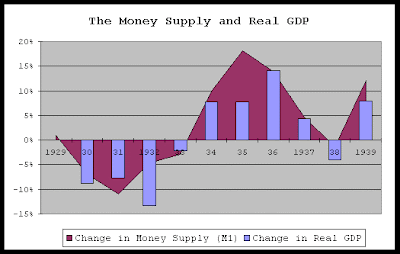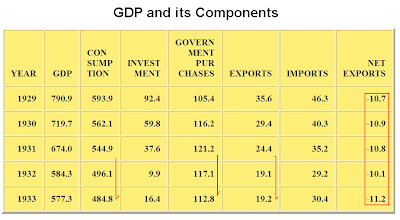"People of privilege will always risk their complete destruction rather than surrender any material part of their advantage."
John Kenneth Galbraith, Age of Uncertainty
This is a response to Mr. Krugman's recent column as it was featured at Economist's View titled, Republican Lust for Gold
I am not in favor of a return to a gold standard.
I am a reasonably well-educated, politically progressive professional, a likely supporter of Bernie Sanders as an economic reformer and an opponent of endless war, and certainly not the 'Wall Street Democrats.' I believe that the current 'debate' over the place of gold in the economy is breaking along ideological lines to the point of a religious fervor and intellectual blindness, on both sides.
I think of gold as an alternative store of wealth, which without any sanctions from the state pro or con can serve a very useful purpose. It gives people a 'choice.' It can act as a barometer of sentiment. And it serves a purpose, especially in times of pervasive fraud in the financial asset markets, as an asset without mispriced or even hidden counterparty risk if held directly.
And if you think that the problem of pervasive fraud has been fixed you are sorely mistaken.
If a system cannot stand the criticism offered by something which it cannot and probably ought not to control, then perhaps the fault is in the system, and not in the critics.
And while we are on the topic, what by any stretch of the imagination do you subscribe the issue of 'gold' to the Republican establishment? Who shut the gold window in 1971? One of the few things that Chairman Greenspan said is that statists from both sides of the aisle despise and fear gold because it constrains them in their quest for discretionary power. And he was right.
The current 'stimulus' is a massive failure because it has been trying to save a broken and largely unreformed financial system, rather than provide stimulus and support to the vast majority of the participants. It is the consequence of placing the highest priority in means and methods, because they are 'ours.' Our method, our model. First and foremost. Because we fear for our credibility.
And so the participants who are complicit in the fraud and those who are invested politically in the models and methods both become ensnared in a 'credibility trap,' and what Mike Lofgren has called 'the anti-knowledge of the elite.'
Unfortunately, Gresham's law is still works. Gold, and to a lesser extent silver, are flowing 'en masse' to Asia in almost astonishing numbers of tonnes each month. The numbers are there, little publicized and noted in the prestige media, but almost shocking. It has not yet made its way fully into official reporting mechanisms, even so called 'industry organs.'
Mr. Krugman, nine out of ten Americans will notice that the vast peoples of Asia and the Mideast are not 'Republicans.' The central banks of the world are hardly 'Republicans,' but they became net buyers of gold around 2007.
No, they are not the easily mocked Republicans.
But they are looking for a safe alternative to a monetary and financial system that is going off the rails, again. The modern hypothesis that all money is purely arbitrary is only feasible if one has the ability to make their purely arbitrary valuations stick. That is the Faustian bargain with the will to power, the endless war of the monetary relativists.
Would we make enemies of the whole world for the sake of a corrupt and unsustainable financial system? Alas, some would, and are doing so even now.
As I am sure you know, once a force like Gresham's Law goes into effect, which it already has, it can quickly turn into a torrent of consequences. Will we continue to argue until that event is upon us, as we did with the prevalent fraud in the housing bubble that was created by the same perpetrators who have continued to rig markets even until today?
The dogmatic modelist and political hack sees China and India and other nations buying gold and says, 'We must stop this! Control it!' The thinker sees a sea change in the monetary markets and says, 'we must understand why this is happening, and what we may be doing to provoke it. And if we are doing something wrong, then correct it.'
No I do not support the gold standard, not at all. It would be entirely inappropriate for a patient still in the ICU to be prescribed a regime of hard exercise and strict diet. And the corruption in this system is capable of corrupting anything, even an external standard.
Given the proper regulation, transparency, and judgement, a paper currency can emulate the steadiness of a gold standard while allowing for more latitude in times of distress. Do you really believe that we have held to that prescription with our serial bubbles, frauds and crises?
But I do feel quite strongly that the current policy of constant market intervention in the West, which is obviously happening to anyone who is capable and experienced in watching trade patterns, is going to tear a hole in the facade that this sick series of policy errors is becoming.
If one takes even a cursory look at the trade flows of gold, one can see that the flows into Asia and the Mideast are relentless, and growing. And the decline of 'free float' in the UK and US in particular is striking. The numbers are difficult to discover, but some have taken on that task.
The leverage and shuffling of free bullion around to dull the interest in leverage is approaching 300 to 1 in NYC and 200 to 1 in the 'physical' LBMA market in London is the kind of obvious error that one looks back at from the wreckage and says, 'What were they thinking?'
We made a mistake. A big one. We have tolerated a farcically ineffective program of 'reform' and a massive top down stimulus focused on the 'system' with an austerity for the public that is going to rip a tear in the social fabric which will take years, and a significant amount of pain, to mend.
It is going to happen, no matter what models or arguments you may wish to stick your head in. I am not trying to argue a point. I am trying to encourage people to at least look at what is happening, and to stop comforting themselves with obviously faulty numbers and metrics from a system that has stopped serving most participants in favor of a powerful few.
This is going to end badly. I was more demure when we had similar discussions here like this prior to the housing bubble collapse. 'And no one could have seen it coming.' Because their eyes were closed and they comforted themselves with what they wanted to hear.
There is, at some point, going to be a dislocation in the international currency and bond markets. And it will be noticeable, unless we change our ways and embrace honesty, transparency, broader equity, and reform.
It will not come from the political process, because that has also been broken by the power of big money. That has become so painfully obvious that the only way to continue to justify it is to declare corporations to be 'people' and bribery to be 'free speech.'
People may think of themselves as 'Keynesians,' and what the 'other side' thinks about Keynes is admittedly mostly an ideologically tainted caricature. But first and foremost what made Keynes effective was his practical focus on the desired results and not to a preconceived model which crushes out the better part of reality in its understandable and unfortunate inadequacy that is common to all 'models.' Keynes was an independent thinker who was confident enough to occasionally change his mind without worrying overmuch about his credibility, and not an acolyte of some constraining school of thought made dogma.
No, rather than a 'gold standard' now I think gold should stand alone, and be allowed to speak whatever truths it may. As for any use of it by nations, let them make what use of it as they wish. It is a tool. But once they make it 'official' they cannot seem to keep from trying to cage it, and control it. But by then it is merely collateral damage of a growing corruption and fraud of finance, rarely without an accomplice in monetary economics.
At some point the thought leaders will have to rise above their own political enthusiasms and personal aspirations and begin to honestly and openly address what is going wrong. And then perhaps we may begin to push for the return of some of the basic principles hammered out in the 'New Deal' which we so foolishly allowed to be weakened and then overthrown in the 1990s, and even until now.
And, Mr. Krugman, that was a decidedly bipartisan effort. And the players and their enablers who brought us that misery are still active, unabashedly, in the highest circles of power.










































